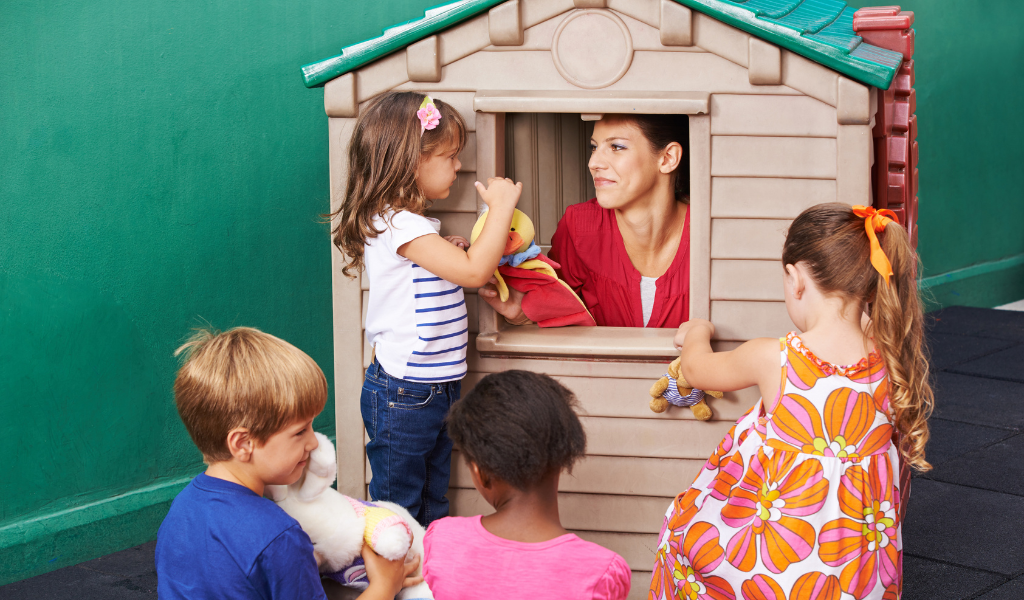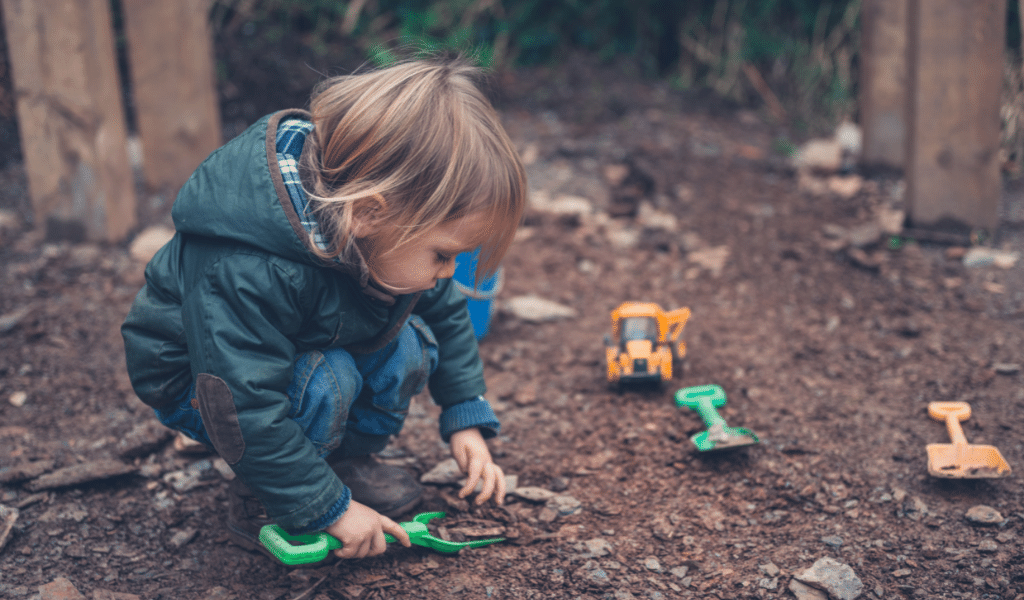Play is the way that children learn – it motivates all areas of learning and stimulates desire for learning. Play is fun and children do not even realise they are learning and it brings so much joy. Childhood should be filled with happiness and play creates opportunities to be happy, freedom to choose, be creative and imaginative and, of course, be joyful. Play is how children make sense of the world and their place in it. We are born with the innate desire to learn and to communicate and connect with others. We can support this natural desire to learn and connect by developing our interactions with children and ensuring that they are playful.
The joy of childhood is something to be cherished. We want children to experience joy with us in our settings. Through play we can engage with them and share their joy – being invited into a child’s play is a privilege and allows us to chat with children encouraging them to open to us, sharing what is important to them, what their interests are and any issues that may be troubling them. Engaging with children in their play shows that you are there for them valuing their choices and opinions. Joyful play sparks the brain’s reward centre which triggers dopamine – dopamine is a crucial neurotransmitter in our brains and it plays a vital role in regulating functions such as motivation, pleasure, reward and, of course, learning. It is directly linked to feelings of satisfaction and joy. We are an important part of this equation – for a truly joyful environment, it is imperative that we experience joy in our workplace and I believe starting from the children’s interests, planning in the moment and engaging in playful interactions reduces stress and provides joy.

When children are playing, focused and fully engaged in play then they are deeply involved and this enriches their brains. During play, they are able to rehearse for possible futures or use their creativity to imagine futures – play is essential for children’s learning, providing a dynamic way for them to explore, experiment and make sense of the world. Through play, children not only experience joy but also develop crucial cognitive, emotional and physical skills. We need to create an environment that supports their holistic growth and prepares them for the challenges of the future.
According to Bruce (2012) children need sensitive adults who will encourage and support play and give them space and opportunities to do so. To engage in playful interactions we need to be available to the children as and when they need us, and then to be truly present – not concerned with other things such as possible outcomes – children know the purpose of their play, we just need to spend the time to discover what that purpose is, through playful interactions. We need to be interested in those children, go from their interests and follow their lead and our goal is to ascertain what the child is trying to achieve in their play. The child is able to choose the purpose and therefore the learning potential at exactly the right level of understanding for them. We need to be playful with the children, showing enthusiasm for their ideas, not taking over their play, but being led by them – we are almost actors being directed by the children! The joy of this for adults is that we are being invited into their play and supporting their independence and confidence, and can provide prompts and enable children to develop their thinking and understanding.

Joy plays a critical role in the early years as it fosters a positive and engaging environment where children are motivated to learn. When children experience joy they are engaged, curious and interested in exploring new ideas. The joy we create for them through valuing their play and engaging in playful interactions with them, supports their creativity, their imaginations and instils a love of learning. It also brings us joy!

About the author
Over the last 2 decades, Dawn has been immersed in all facets of the Early years sector. Dawn originally trained as a Montessori teacher, and has Early Years Teacher Status, a Postgraduate Certificate in Education and a Masters Degree from the University of Roehampton. A key principle of her practice is that all those working with children need a good level of understanding of knowledge and theory and an outstanding practitioner needs to be able to demonstrate this knowledge by putting it into practice. In the last few years Dawn has been working on ways to develop playful interactions to enable strong emotional connections between adults and children. She feels very passionately that adults need to engage with children as play partners, supporting, extending and respecting their play, valuing those play choices. Dawn firmly believes in the child’s right to play and is an advocate for a play curriculum in early years especially through In the moment planning.